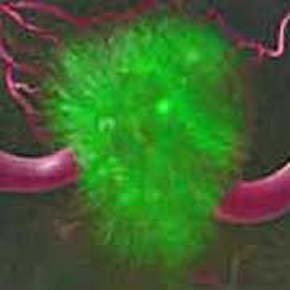 London, Mar 26 : A team of Canadian researchers has found a novel way to stop the most aggressive cancerous tumours from growing and spreading.
London, Mar 26 : A team of Canadian researchers has found a novel way to stop the most aggressive cancerous tumours from growing and spreading.
They found that simply modifying a natural tumour-inhibiting protein, von Hippel-Lindau, could suppress growth in even the most dense tumours.
A study, conducted on mice, showed that the disease was stopped in its tracks and tumours shrank by 50 per cent.
According to researchers, one day the discovery could be used as a therapy for patients suffering aggressive cancers of the breast, prostate, colon, brain, lungs and kidneys.